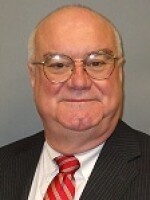
John Hightower
Host of Brass, Reeds and PercussionBorn in Natchez, Mississippi, in 1951, John moved to Huntsville in 1975, where he worked for a communications training firm. From 1997 to 2022, John worked for the Lanier Ford law firm. During his tenure, He served as Lanier Ford's law librarian, marketing specialist, trainer, and professional recruiter.
From 7th grade to 12th grade, John was involved in band (he played flute and piccolo), a fact that explains his fascination with band music.
John graduated from Mississippi State University (MSU) with a degree in communications and from the University of Mississippi with a law degree. While attending MSU, he worked in professional radio in Starkville for WSSO and WSMU-FM (sister stations). While attending law school in Oxford, John worked for WSUH and WOOR-FM (sister stations). .He served as program director at both sets of stations. Radio was always a lot of fun for him, and he said, "I can't believe how lucky I am to be working in radio again."
John says he has big shoes to fill in following Darryl Adams as host of Brass, Reeds, and Percussion. Darryl passed away on October 18, 2011. But since that time, John has continued a Huntsville tradition at 1 p.m. every Saturday on WLRH.
Thank you, Darryl Adams, for the many wonderful years you dedicated to WLRH. You are missed!
-
This edition of Brass, Reeds, and Percussion features a wind-band arrangement from “Prince Igor,” an opera composed by a Russian doctor—namely, Alexander Borodin.
-
This edition of Brass, Reeds, and Percussion features original classical wind-band music by the Polish-Austrian composer with an Italian last name: Antonio Casimir Cartellieri.
-
This edition features the music of Merle Evans, conductor of the Ringling Bros. Barnum & Bailey Circus for 50 years.
-
This edition features music composed by Morton Gould, Claude T. Smith, and Alan Silvestri. This edition opens with the theme from “Back to the Future,” composed by Silvestri.
-
This edition features two new recordings of Carl Teike marches from album published by the Royal Swedish Navy Band.
-
This edition features original classical wind-band music by Carl Stamitz and marches by Harry L. Alford.
-
This edition of Brass, Reeds, and Percussion features trombone music and an interview with Patrick Sullivan of Bone Yard of Brass.
-
This edition of Brass, Reeds, and Percussion opens with a march written in 1918 by the circus-band composer Fred Huffer, who lived from 1879 to 1943.
-
Through the legerdemain of radio virtual reality, Brass, Reeds, and Percussion visits Woodstock der Blasmusik in Austria for this edition.
-
This edition of Brass, Reeds, and Percussion features the wind-band music of contemporary composer Kenneth Fuchs and marches of Edwin Franko Goldman.



